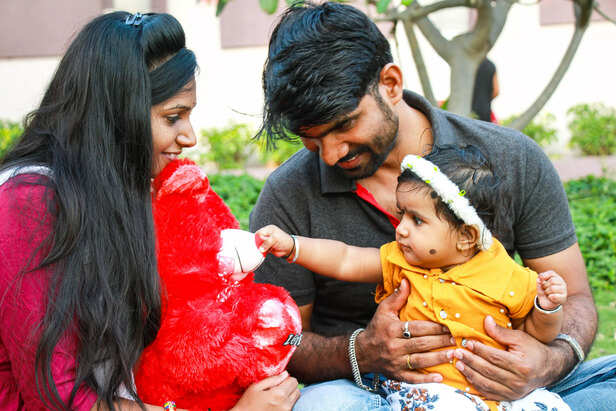Why You’ll Never Be Good Enough for Indian Parents
Riya Kumari | Jan 16, 2025, 23:59 IST
You’ve been there. Sitting at the dining table, pushing around rice on your plate, while your parents ask yet again why you didn’t apply for that MBA program your cousin just finished (top of her class, of course). You’ve smiled through the endless comparisons, nodded at the unsolicited advice, and walked out of countless family gatherings wondering if you’ll ever measure up to the version of yourself they seem to believe exists somewhere in the cosmos.
You will never be good enough for your Indian parents—not because they don’t see your worth, but because they know your potential is boundless. They see the greatness within you, and their expectations are a reflection of their belief that you can exceed anything you may consider to be “good enough.” So, when you feel the weight of their judgments, remember that they are not defined by a need for perfection. They are shaped by a love so deep, so profound, that they want to see you rise to a place that even they could never have dreamed for themselves. You’re not failing by their standards. You’re simply being invited to reach for something greater—something that transcends opinion, and touches the very core of purpose and legacy.

Indian parents, like many around the world, often carry with them the weight of unspoken expectations. These are not just superficial desires for their children to succeed. They are legacies of sacrifice, dreams built through years of struggle, and the deep yearning to see their children surpass every barrier that life has ever thrown at them. The “never good enough” sentiment is not born out of malice—it’s rooted in a profound sense of responsibility, an overwhelming desire for you to achieve greatness beyond what you’ve been given. It’s a reflection of love, not just criticism.

Perfection doesn’t mean flawless success or an ideal life. It means potential. Indian parents often look at their children as vessels capable of something far greater than the average. For them, achieving something significant is not just about meeting expectations—it’s about shaping a future that reverberates with purpose, making a mark on the world that transcends individual success. The “good enough” label is never about personal failure; it’s about the fear that you may not have reached the height of what you could have been. In their eyes, there’s always more to strive for, always a place you could rise to.

Behind every question of whether you’re good enough is a quiet acknowledgment of all the sacrifices that have come before you. The journey your parents have walked—often in harsh circumstances—was not just to provide you with food or a comfortable life; it was to give you the tools to transcend what they could ever hope to accomplish. It’s this legacy that weighs heavily in every word they speak. The pressure you feel isn’t their attempt to pull you down; it’s their desire to lift you up to the highest standard of greatness they know.

When Indian parents question your path, it’s not always about approval—it’s about meaning. They want your life to have depth, to contribute to something greater than yourself. It’s about building a future that echoes through time, not just checking boxes of career titles or financial success. The frustration you see, the constant questioning, is an expression of their desire for you to live with purpose—to pursue something that leaves a legacy of significance, not just personal comfort.

In a world where the pursuit of individual success often overshadows collective growth, the idea of “good enough” can feel limiting. But when you shift the lens, you realize that “good enough” is not about meeting a set of personal standards. It’s about transcending the ordinary, seeking something more meaningful, and fulfilling a greater purpose than just meeting expectations. In this sense, the judgment you feel is not an attack on who you are—it’s an invitation to be more than you’ve imagined.
The Burden of Unspoken Expectations

Indian family
Indian parents, like many around the world, often carry with them the weight of unspoken expectations. These are not just superficial desires for their children to succeed. They are legacies of sacrifice, dreams built through years of struggle, and the deep yearning to see their children surpass every barrier that life has ever thrown at them. The “never good enough” sentiment is not born out of malice—it’s rooted in a profound sense of responsibility, an overwhelming desire for you to achieve greatness beyond what you’ve been given. It’s a reflection of love, not just criticism.
The Pressure of Perfection

Family
Perfection doesn’t mean flawless success or an ideal life. It means potential. Indian parents often look at their children as vessels capable of something far greater than the average. For them, achieving something significant is not just about meeting expectations—it’s about shaping a future that reverberates with purpose, making a mark on the world that transcends individual success. The “good enough” label is never about personal failure; it’s about the fear that you may not have reached the height of what you could have been. In their eyes, there’s always more to strive for, always a place you could rise to.
The Legacy of Sacrifice

Study
Behind every question of whether you’re good enough is a quiet acknowledgment of all the sacrifices that have come before you. The journey your parents have walked—often in harsh circumstances—was not just to provide you with food or a comfortable life; it was to give you the tools to transcend what they could ever hope to accomplish. It’s this legacy that weighs heavily in every word they speak. The pressure you feel isn’t their attempt to pull you down; it’s their desire to lift you up to the highest standard of greatness they know.
The Pursuit of Meaning, Not Approval

Indian child
When Indian parents question your path, it’s not always about approval—it’s about meaning. They want your life to have depth, to contribute to something greater than yourself. It’s about building a future that echoes through time, not just checking boxes of career titles or financial success. The frustration you see, the constant questioning, is an expression of their desire for you to live with purpose—to pursue something that leaves a legacy of significance, not just personal comfort.
Redefining “Good Enough”

Diwali
In a world where the pursuit of individual success often overshadows collective growth, the idea of “good enough” can feel limiting. But when you shift the lens, you realize that “good enough” is not about meeting a set of personal standards. It’s about transcending the ordinary, seeking something more meaningful, and fulfilling a greater purpose than just meeting expectations. In this sense, the judgment you feel is not an attack on who you are—it’s an invitation to be more than you’ve imagined.
